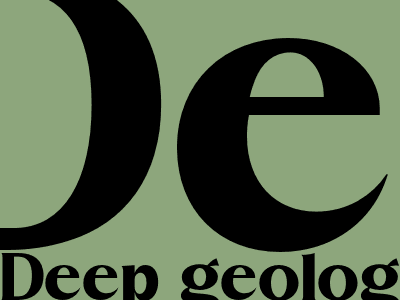
Germany's Deep Geological Repository: A Path to Sustainable Nuclear Power
Introduction
Germany, a long-time user of nuclear power, has embarked on a groundbreaking initiative to establish a deep geological repository for the safe and permanent disposal of high-level radioactive waste. This complex undertaking involves the excavation of a vast subterranean facility, meticulously designed to isolate and contain hazardous materials for thousands of years.
The Need for a Deep Geological Repository
Nuclear power plants generate electricity by splitting atoms, resulting in the production of radioactive waste. This waste requires specialized management to prevent environmental contamination and protect public health. Traditional methods, such as interim storage facilities, are temporary measures that do not provide a long-term solution.
Deep geological repositories offer a scientifically proven method for the permanent disposal of radioactive waste. These facilities are built deep underground, typically in stable geological formations, to minimize the risk of human exposure or environmental impact.
Planning and Development
The development of Germany's deep geological repository is a multi-faceted process that involves extensive research, site selection, and public engagement. The Bundesgesellschaft für Endlagerung (BGE), a federal agency, is responsible for overseeing the project.
Site Selection
The BGE has been conducting detailed geological surveys to identify potential sites for the repository. The criteria include the rock formation's stability, low permeability, and absence of major faults or tectonic activity. The final site will be selected after rigorous scientific evaluation and public consultations.
Repository Design
The deep geological repository will be designed to withstand geological changes and isolate radioactive waste for thousands of years. It will feature multiple layers of engineered barriers, including corrosion-resistant containers, backfill materials, and sealing systems.
The repository will also be equipped with advanced monitoring systems to ensure its integrity and prevent any potential leaks or accidents.
International Collaboration
Germany's deep geological repository project is part of a global effort to develop safe and sustainable solutions for the disposal of radioactive waste. The BGE actively collaborates with international organizations, such as the International Atomic Energy Agency (IAEA), to share knowledge and best practices.
Learning from international experiences and leveraging global expertise helps Germany refine its own repository design and implementation strategies.
Public Engagement and Transparency
The BGE recognizes the importance of public involvement in the development of the deep geological repository. Extensive public consultations and information campaigns are conducted to inform and engage citizens throughout the process.
The BGE also publishes regular reports and makes project-related documents publicly available to ensure transparency and build trust.
Benefits of a Deep Geological Repository
A deep geological repository offers several significant benefits for Germany's nuclear power industry and the nation as a whole:
- Permanent Disposal: The repository will provide a safe and permanent solution for the disposal of high-level radioactive waste, eliminating the need for future generations to manage this hazardous material.
- Environmental Protection: The repository's deep underground location and engineered barriers prevent radioactive waste from contaminating the environment or harming human health.
- Nuclear Power Sustainability: The development of a deep geological repository addresses one of the major concerns associated with nuclear power, ensuring that the industry can continue to operate in a sustainable and responsible manner.
Conclusion
Germany's deep geological repository project is a testament to the nation's commitment to responsible nuclear power and environmental stewardship. Through meticulous planning, international collaboration, and public engagement, the BGE is creating a safe and sustainable solution for the long-term disposal of radioactive waste.
This groundbreaking project not only secures a clean energy future for Germany but also contributes to the global effort to develop robust and reliable nuclear waste management strategies.